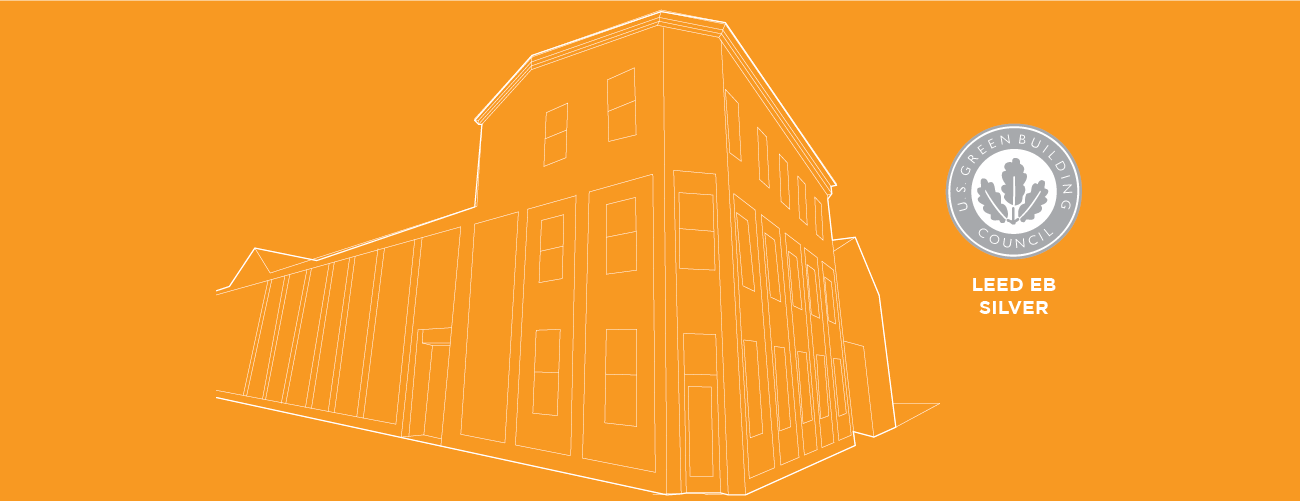Pittsburgh Opera
How the Opera’s Innovative Ownership Approach Led to a Historic Building’s Green Operations and Management
In 2008, the Pittsburgh Opera renovated and moved into the original George Westinghouse Brake Factory (built in 1869), located in Pittsburgh’s historic strip district. The former factory became not only the Opera’s first ever owned property, but was renovated and is operated using green principles.
As new owners, the Opera relocated and consolidated all of their operations under one roof; replete with over 15,000 square feet of rehearsal and performance space with another 15,000 dedicated to administrative and operations staff. To further their commitment to green operations, they engaged evolveEA to provide a comprehensive analysis of existing building and business green practices and assist in the pursuit of LEED for Existing Building Operation and Maintenance (EBOM) certification.
As a result of the Opera’s and evolveEA’s collaboration, the company has formally adopted and documented sustainable practices with plans to leverage lessons learned toward continuous improvements in the years to come. The results of this project exemplify opportunities that exist for sustainability improvements in all buildings, especially historical landmarks.
Becoming owners
Pittsburgh Opera purchased George Westinghouse’s first factory and planned to renovate it into executive offices, rehearsal space, wardrobe, a black box theater and parking. Midway through the design and construction process, evolveEA was engaged to offer sustainable opportunity insights during remaining construction and manage completion of the LEED EBOM certification process.
While most design decisions had already been made, evolveEA recommended the installation of low flow plumbing fixtures and made sure that a dance studio above the garage was properly insulated to save energy. We also recommended that the client to engage an energy auditor to assist with post-construction fundamental commissioning. Commissioning provided systems testing and verification of performance and an opportunity to review historical operating records and look for opportunities for improvement.
Proactive ownership leads to long term savings
The new headquarters was analyzed comprehensively with a goal of reducing energy usage related to both energy and water usage. During the process, Pittsburgh Opera hired a facility manager who enthusiastically embraced the sustainable strategies and additional programs and policies developed for implementation. Lighting was upgraded, HVAC component were repaired or replaced, additional controls were installed, and green procurement and green cleaning practices were implemented. As a result of the auditing and green practice implementation process the Opera reduced operating costs by $18,000 annually and expects a payback of their cumulative investments within 4 years.
Planning for the future
Other future considerations have emerged from this process, such as installing solar panels or a solar hot water system on the south facing roof or sub-metering to better understand how tenant rentals affect energy usage. These future improvements likely would not have been considered without the LEED process to act as a catalyst.
After a lifetime of renting, the LEED process has accelerated the Opera’s growth as owners. Pittsburgh Opera is now more responsible about managing their real estate in the greenest and most cost effective way possible. In addition, because they’ve accumulated a portfolio of building energy and process data, the Opera can budget for future building improvement forecast needs.
The building was George Westinghouse’s first factory built in 1869. He was a great innovator in his time. Pittsburgh Opera is bringing 21st Century innovation to his building. He’d be proud.


